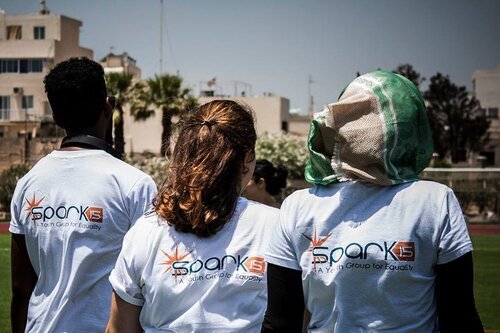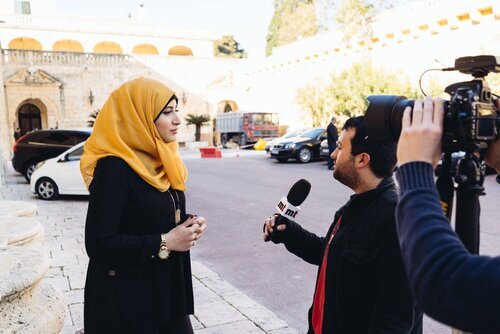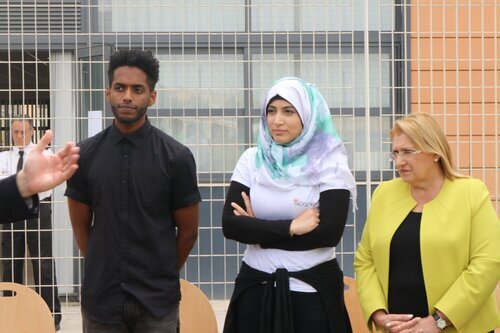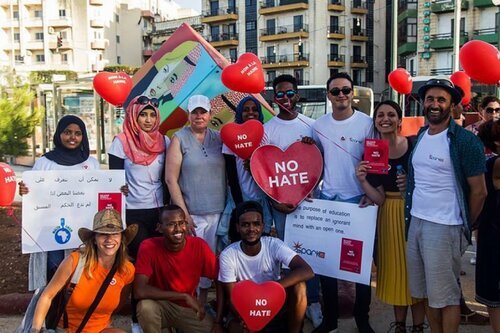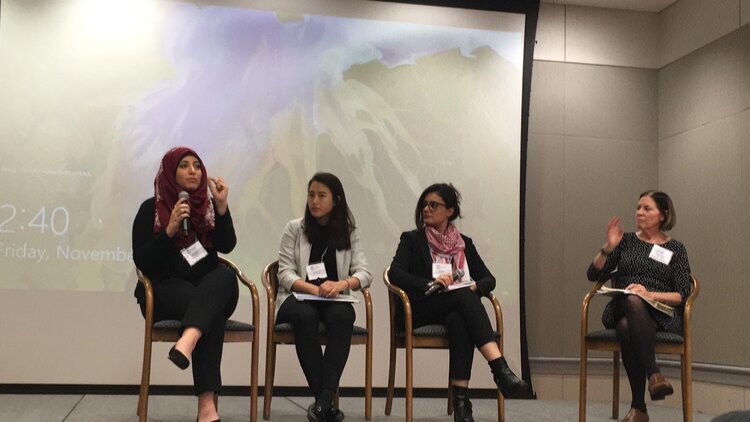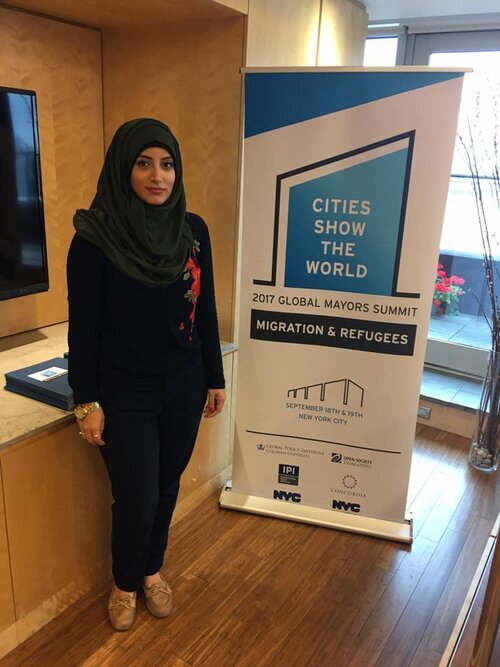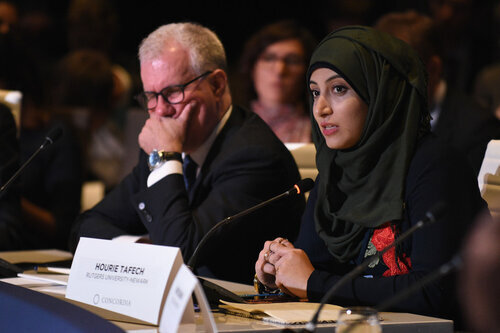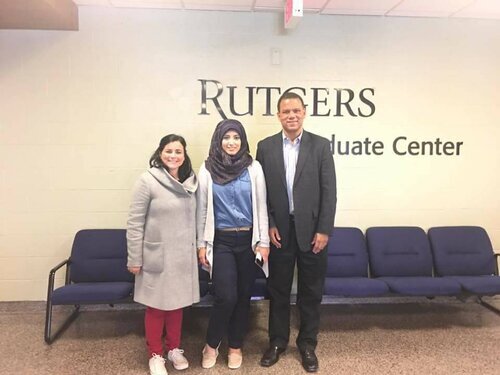"UNRWA was the bridge that connected me to the outer world": how an UNRWA education changed Hourie's life
To many Palestine refugees, UNRWA rings synonymous with education. With approximately half of the Agency’s budget dedicated to running its robust education program, free primary schooling for half a million refugee girls and boys, this correlation comes at little surprise -- and yet, it is also no small feat.
For the thousands of refugee children and families aspiring towards a better future, education holds the key. This was no different for Hourie Tafech, a Palestine refugee whose grandparents fled their home in Safed, Palestine during the Nakba in 1948. Raised in Lebanon’s Ein el Hilweh Camp, she says “UNRWA was the bridge that connected me to the outer world by providing me access to education.”
Hourie speaking at a panel on education and activism in Malta
Hourie’s path and how she sees the world has been strongly influenced by her Palestine refugee status and the opportunities it both denied and provided. “As a refugee, I have nothing [more] to lose. I only have things to gain. Though there have been many challenges, I’ve also learned resilience and empathy. There have been struggles, but also good memories,” she says.
In Lebanon, Palestine refugees have a particularly challenging life, and oftentimes education is the only path towards upward mobility. Palestine refugees are not allowed to practice in over 20 professions, including medicine, law, or engineering, access public health and education services, or own property. As Hourie puts it, “Our refugee status is not just a legal status written on paper. Our status shapes all aspects of our life; it is a fundamental part of who we are now, what we do, and what we can be in the future.”
In spite of this discrimination, the relationship between the Lebanese and Palestinian communities living in Lebanon is not one that can be simply diluted to the power dynamic of host community and refugee. One memory Hourie looks back upon that gives her tremendous hope and pride in her people surprisingly comes from the July 2006 war in Lebanon.
She recalls: “In 2006, several Lebanese families sought refuge at the UNRWA schools in the camp. You cannot imagine the Palestinian response when they recognized that these families needed their help. The streets were packed with people marching towards the schools carrying all sorts of food, mattresses, and bed covers. They showed the true meaning of empathy, and it was one of the moments I sensed a strong sense of connection between the Palestinian and Lebanese communities.”
Beyond this sense of community and empathy, Hourie, alongside many of her fellow Palestine refugees, illustrates tremendous resilience, strength, and success amidst discrimination. In Hourie’s case, UNRWA allowed her to pursue higher education and attend university -- a privilege afforded only to 3% of refugees worldwide. She received an UNRWA scholarship to study graphic design at the Lebanese International University and says, “getting an education via my UNRWA scholarship, along with receiving my advanced diploma in marketing in Malta, has changed my life and opened many doors for me. I have not only worked hard, but I’ve gotten where I am because people believed in me and offered me an opportunity to prove my potential.”
Hourie in Malta working for the organization she co-founded, Spark15
Having seen first-hand how challenging and bleak life is in refugee camps and the role education can play as a path out of them, Hourie felt compelled to help others in her situation, so they, too, could access educational and economic opportunities. “Leaving the camp to the world outside opened my eyes to the severe development challenges and plight that face refugee communities, a perspective I did not have as much of while living in the camp,” she says.
Since graduating in Lebanon, Hourie continued her educational journey by pursuing a higher degree at the College for Art and Science in Malta. While in Malta, she co-founded Spark15, the first young refugee-led organization recognized by the United Nations Higher Commissioner for Refugees (UNHCR). Spark15 advocates for the rights of young refugees to access higher education and the job market.
In 2017, she was granted a fellowship to pursue a PhD in Global Affairs at Rutgers University-Newark in New Jersey so she moved to the United States. Her dissertation focuses on economic inclusion as it relates to refugees, which she studies by examining the factors that influence entrepreneurship among refugee communities. Outside of her research, she supports refugee rights by being a part of the University Alliance for Refugees and At-Risk Migrants, an alliance of universities, practitioners, and policymakers that aim to facilitate refugees' access to higher education.
Hourie in the United States, advocating for refugee rights, specifically the right to education
Hourie sees giving back to her fellow refugees as a calling, and it is clear that it embodies every aspect of her life. Not only is it a baton she feels is her duty to pass on, it is a source of joy and purpose: “I have to give opportunities to other refugees; for me, this is non-negotiable; it is a must. Being a refugee has never been my choice, but advocating for them is the best choice that I have ever made.”
Hourie advocates on behalf of Palestine refugees as a part of the UNRWA Alumni of North America. If you reside in the US or Canada, attended UNRWA schools in the Middle East, benefited from UNRWA services, and/or served as UNRWA staff, you can apply to join her and dozens of others as a part of this close-knit association.



